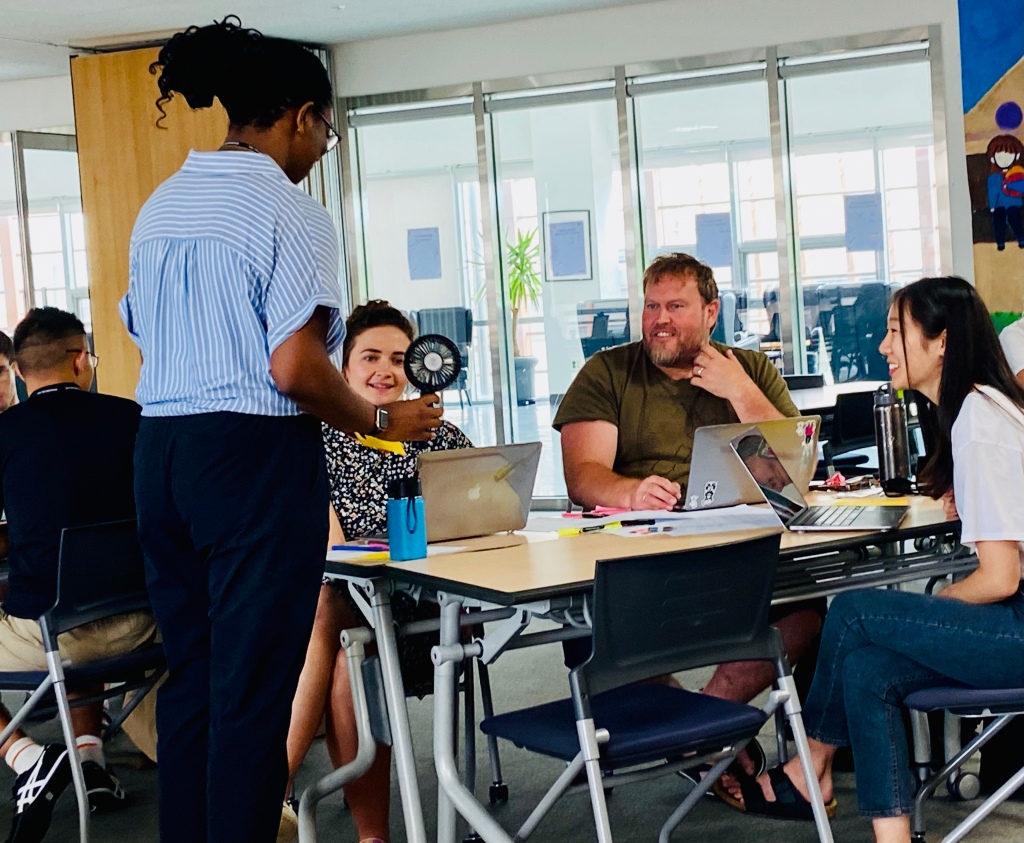
It’s the first week of orientation. It’s a cohort of 30 new faculty in the Junior School. Some are brand new to the PYP. Others have vast PYP experience. And I – as the brand new PYP Coordinator (a fellow newbie!) – am gifted a three-hour session to support them.
I decide to set up a Google Classroom for us to make it easy to share resources, but also to take advantage of interactive elements that will let me engage and support my new colleagues in a more personal way.
I start the session with 3 main goals. I have always loved the idea of, “no secret teacher business” and have found a similar concept of, “no secret leader business”, to be quite powerful. I want them to know what I am doing, how I am hoping to do it, and most importantly why I am doing it in that specific way.
Then we do a little activity called “Stand Up If…” where anyone in the room to whom the statement applies stands up, looks around, and then sits back down. This helps people find connections with others in the room, but also differences. It also super helpful to me as the facilitator to quickly and easily get to know my learners at the start of the session.
I quickly discovered about 40% of people in the room had PYP experience and about 60% were brand new to the program. Which I think is great! It gives both groups a community who are in a similar place in their PYP journey, but it also provides opportunities to cross-connect and learn from and support one another.
Then we moved on to “Tuning In” to what they may already know and understand about the PYP. I broke down the program into some of the central principles; so that people new to the PYP might be able to notice and name principles and practices they are familiar with from other systems of education, their national approach to education, or their teacher training.
I used a four-phased continuum where they could self-assess where they think they are.
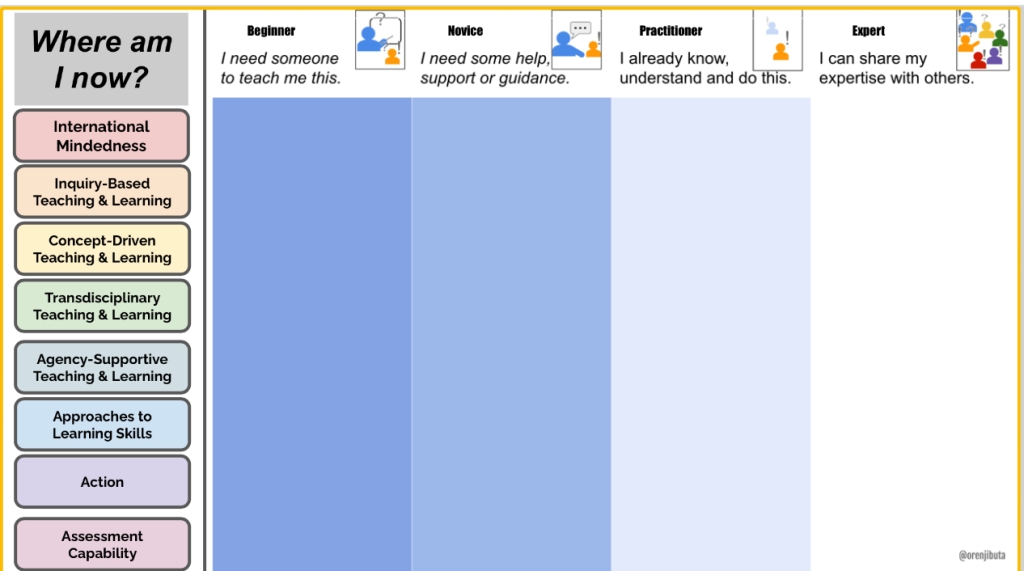
And it was great to see that everyone in the room – whether new to the PYP or not – was able to find components of the Primary Years Program they had some familiarly with.
From there we were able to set up an “I can help with…” wall where everyone signed up for areas of the PYP they felt they could help their peers with.
It was amazing to so many names!
Next we talked a lot about picking one area of the PYP they would like to learn more about and the notion that inquiring into the PYP would be a year-long (life-long?) journey and today was merely about taking a step down that path. We settled on the mantra, “You don’t need to learn everything today, but you need to learn something”; and what that something was, was entirely in their hands.
So everyone selected an area of PYP that they would like to focus on for the remainder of the session and they found their “inquiry buddies” – people who had chosen the same area to learn about.
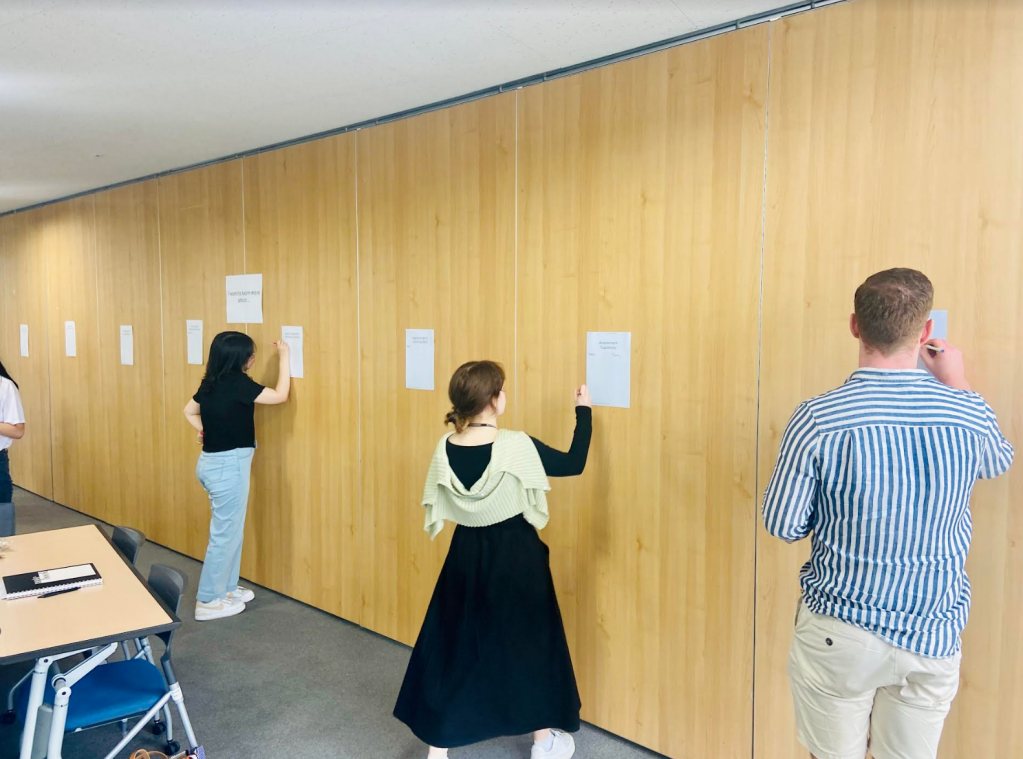
To support their personalized inquiry into the PYP I prepared a curated PYP library that was organized by principles, but also differentiated in terms of content. For people just starting out I linked the Principles into Practice documents and pointed them to the pages that would help them build a strong foundation. For people looking to dive a little deeper, I collected some additional resources from MyIB, Nano PD and other well-known and trusted blogs and podcasts. I also created a section for people who really wanted to explore beyond and engage with some of the research, philosophy, or elaboration on the central principles of the PYP.
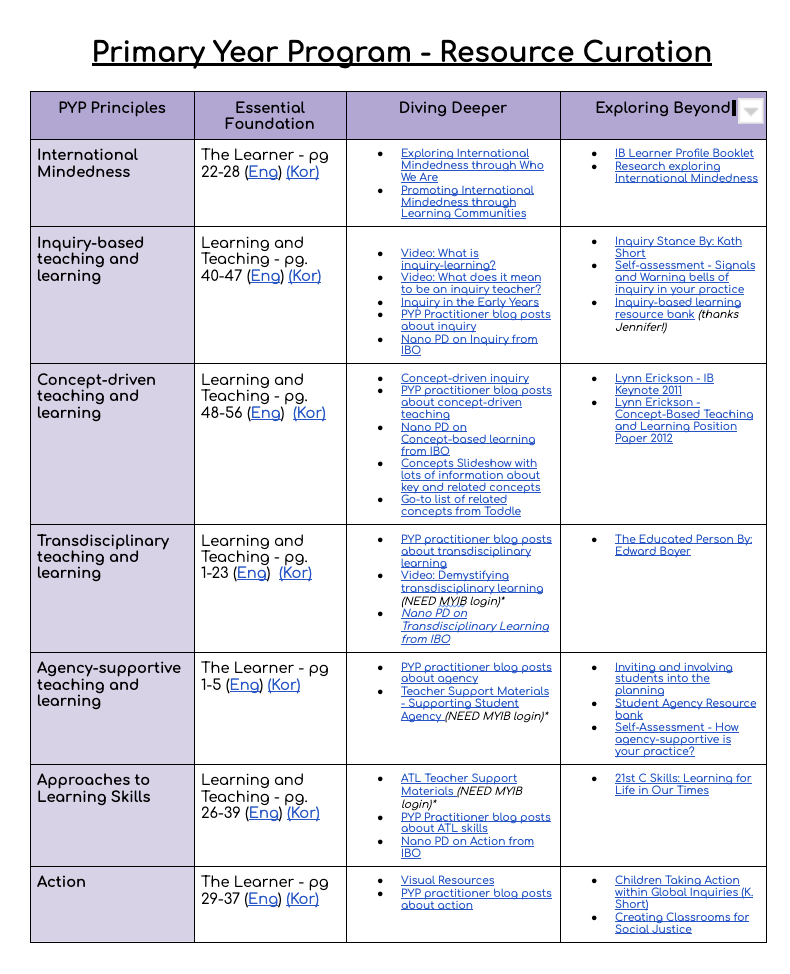
From there… they were off! They had 40 minutes to decide how they wanted to collaborate with their “inquiry buddies”, what resources they wanted to focus and how they were going to document their learning.
Some choose to read IB documents.
Some chose to take a jigsaw approach and divvy up the resources and then feed back to each other.
Some chose to move to learning environments they found more conducive to their learning preferences.
After the 40 minutes were up, I brought everyone back together to facilitate a group synthesis. We used the 4 Cs Visible Thinking Routine, which helped everyone dive a little bit deeper into the thinking behind what they had read, watched, discussed or listened to.
After that, we moved on to a Design Sprint. Participants had ten minutes to put together a 2-3 minute presentation to teach their peers what they had learned about the area of the PYP the explored.
And it was amazing!
The inquiry group modeled an inquiry approach using a hand-fan as a provocation and then supporting everyone to come up with questions and a plan to explore their questions.
The concepts group shared sample Lines of Inquiry and had everyone guess which PYP Key Concepts were the lens for those Lines of Inquiry.
The transdisciplinary group made a mock-UOI and everyone had to identify where there was opportunity within the unit to integrate science, social studies, math, literacy, PSPE and the arts.
The ATL group had everyone reflect on which of the 5 ATL Skill categories they had used within this session.
It was PYP magic at its best!
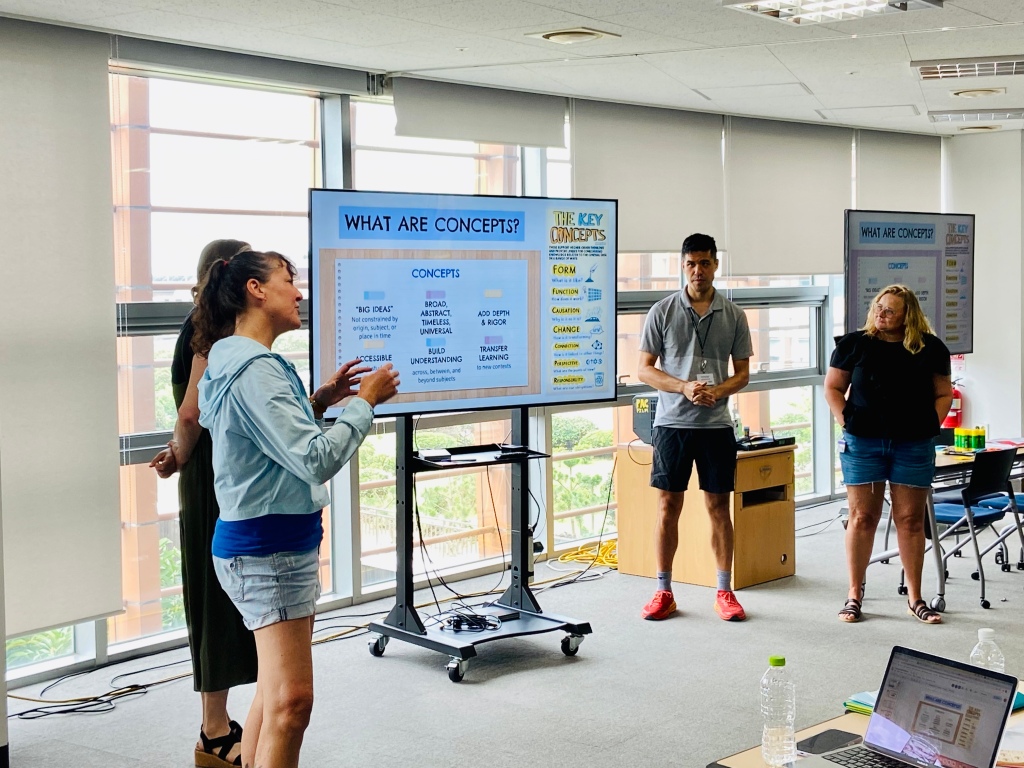
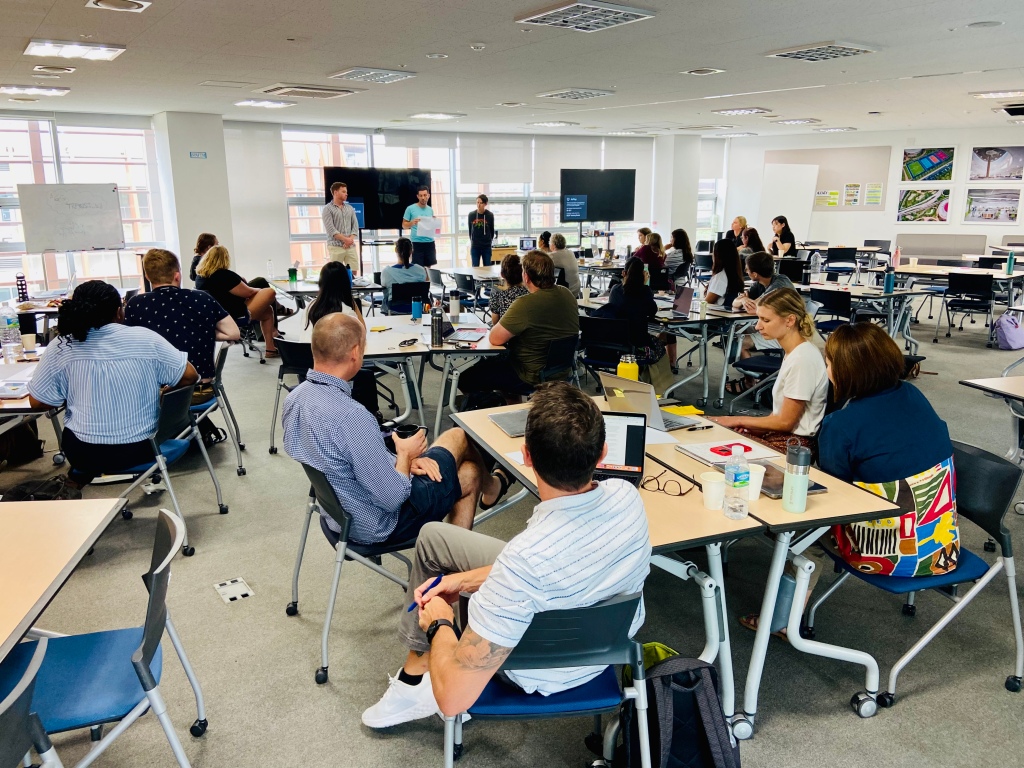
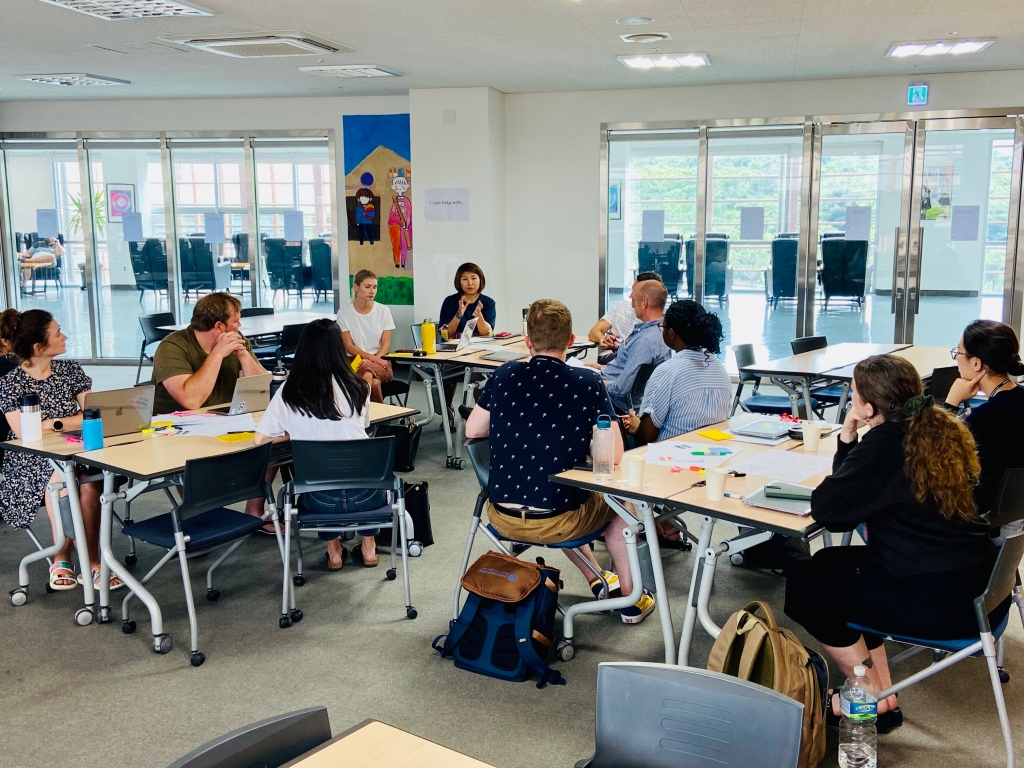
Then it was time to reflect. Originally I had planned a Chalk Talk to support everyone to notice and name how they experienced the principles of the PYP in their own learning… but we ran out of time! So we briefly did a individual reflection.
I also wanted to provide an opportunity for everyone to reflect on how they are feeling as a PYP educator. So I used the Blob Tree as the reflection tool, and collected their private, individual responses via a Google Form
Finally I made transparent the plan for their ongoing support; so that they knew this was not a “one and done” PD session, but rather an ongoing journey of lots of support along they way.
Then it was time for lunch! And we were all hungry…. there is nothing like walking in a learner’s shoes for three hours to build empathy for what our students do each and every day!
The Aftermath
For me it has always been important to make the time after a personalized session like this to engage with, analyze and respond to their evidence of learning. For this particular session I did that in four ways.
- I went through each and every person’s self-assessment and coded it. This allows me to see both individual data of where each person is on their PYP journey, but it also allows me to see trends across areas of the PYP. This is helpful to allow me to responsively plan support for small groups, teams, and the cohort as a whole that targets areas that they have identified wanting more support.
2. I went through all the Blob Tree reflections and read them thoroughly. This helps me keep my finger on the pulse of who feeling like they are flying high and who I may want to check in with to offer some additional TLC. I also wanted to ensure they each knew that I took the time to read their reflection – and I am a HUGE believer in the power of writing notes – so I decided to write a short message to each person responding to what they shared in their reflection
3. I also wanted to follow up with a few individuals to further personalize my support for them. This could have been because they mentioned a specific area they wanted to focus on, or appeared to need a little bit more challenge, or could benefit from a specific resource. So I sent a few follow-up Google Classroom posts with some optional suggestions and resources to these individuals.
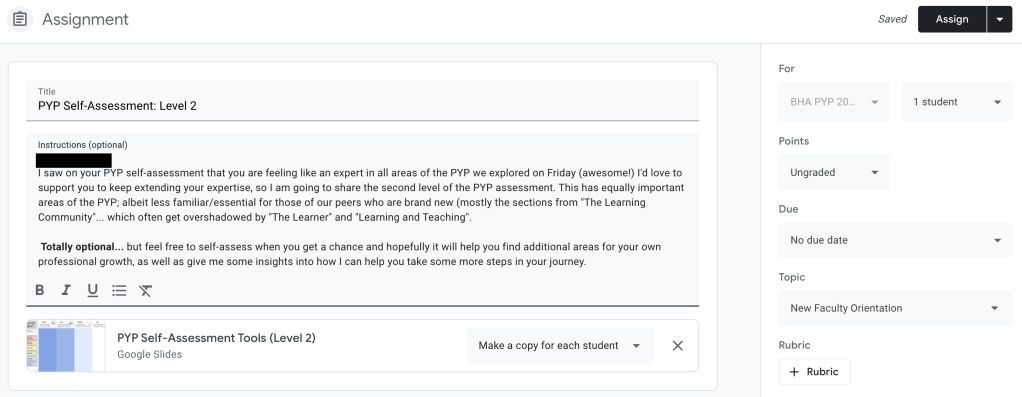
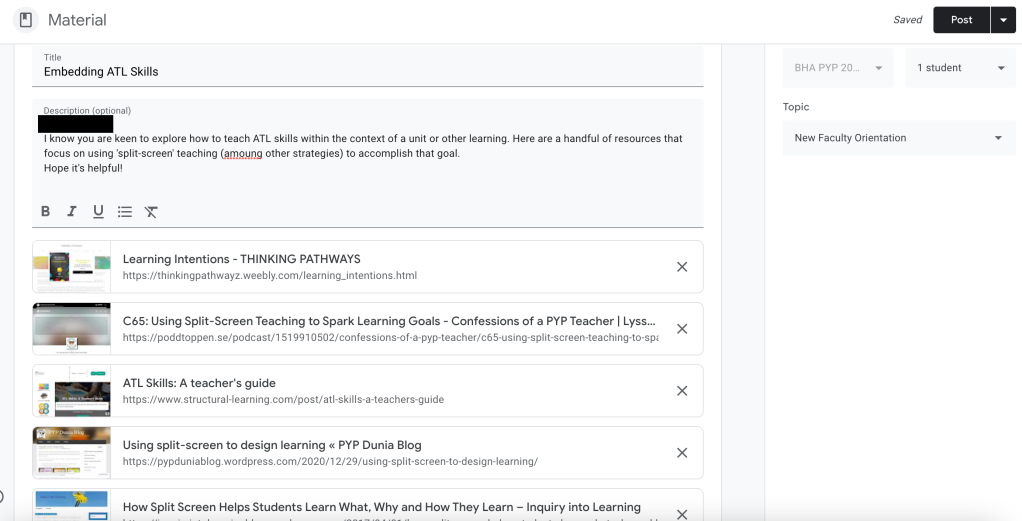
4. I took the information from the “I can help with…” wall and transcribed it onto a digital document that I can share with everyone. That way the peer helper structure we established isn’t just for that session, but can become an ongoing part of everyone’s learning.
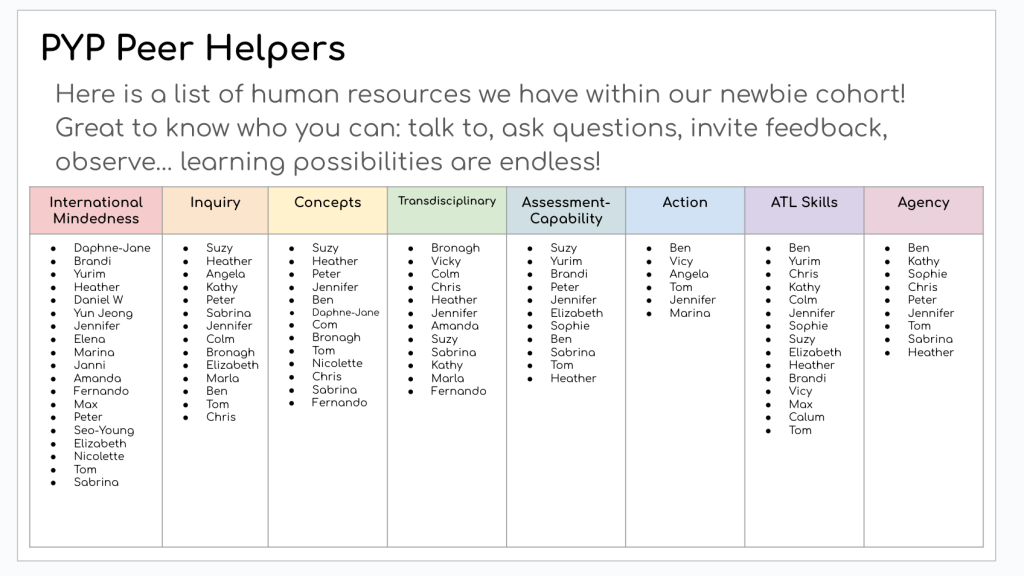
Overall, I was happy with how the session went. I am so blessed to have a group of 30 educators who see themselves as learners and dug right into inquiring, exploring, debating, sharing and reflecting. I’m looking forward to continuing this journey with each and every one of them throughout this year and beyond!
How do you support your PYP newbies?
What strategies, tools and advice would you share?
How do you personalize learning for the adult-learners you support?
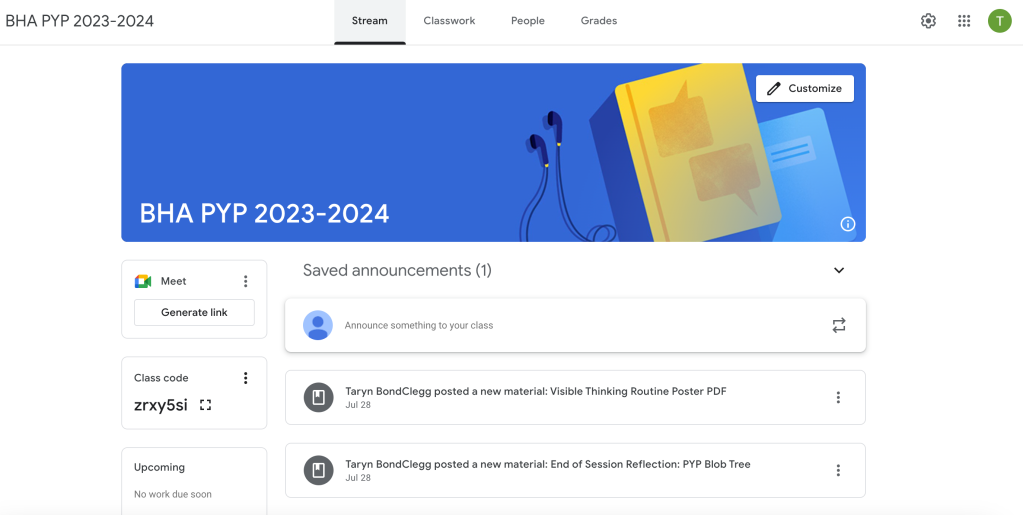
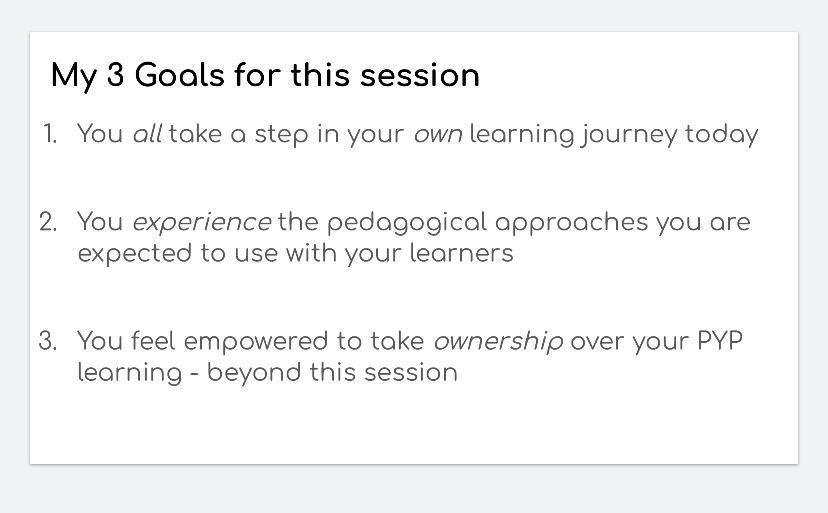
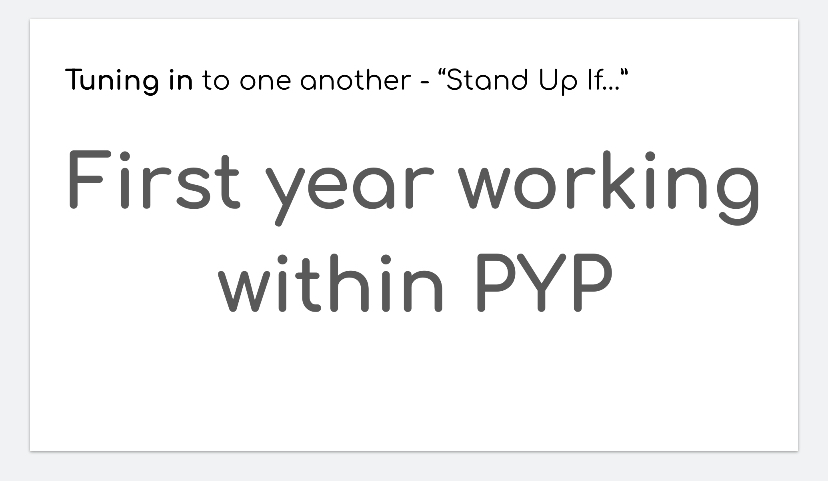
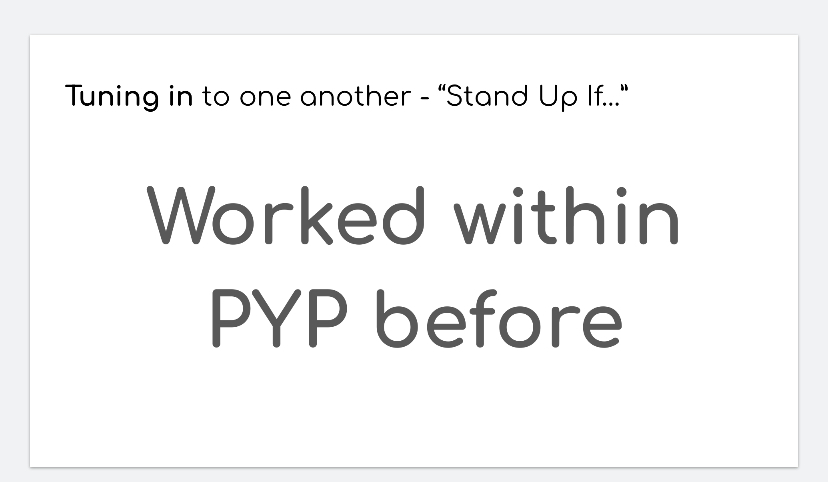
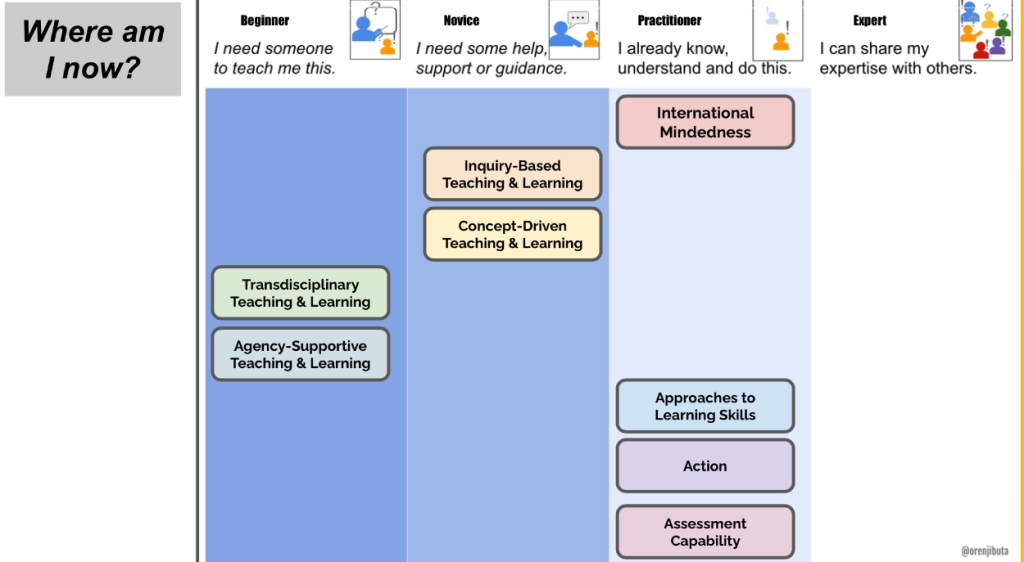
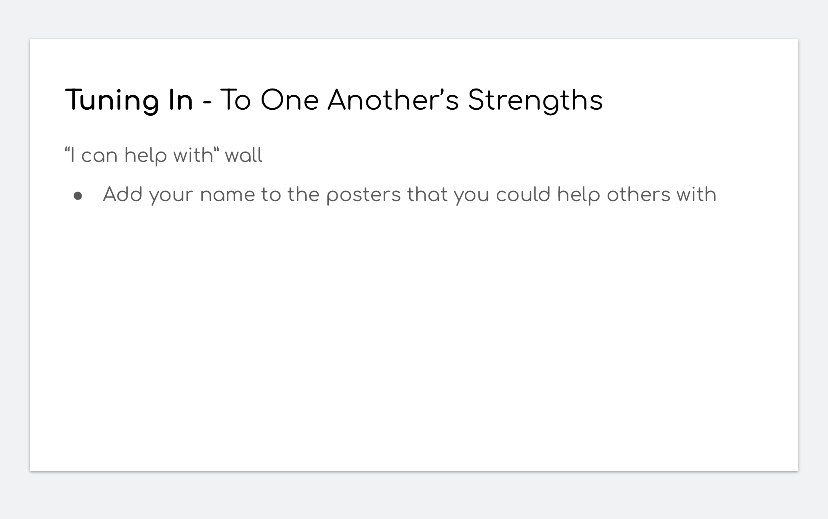
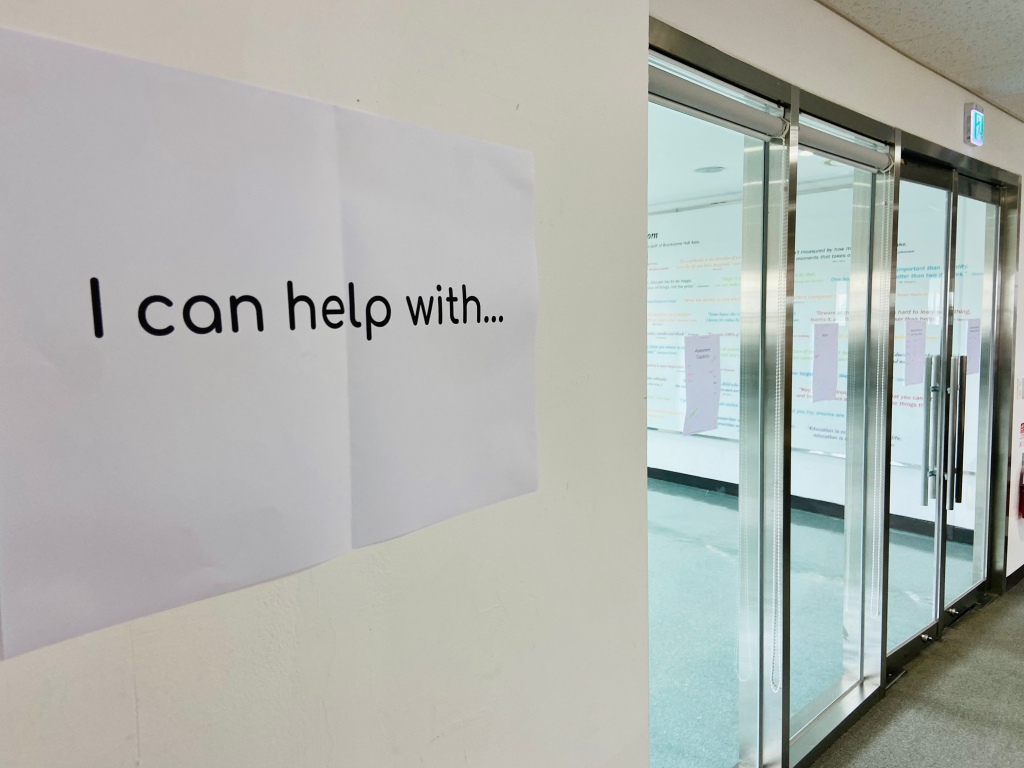
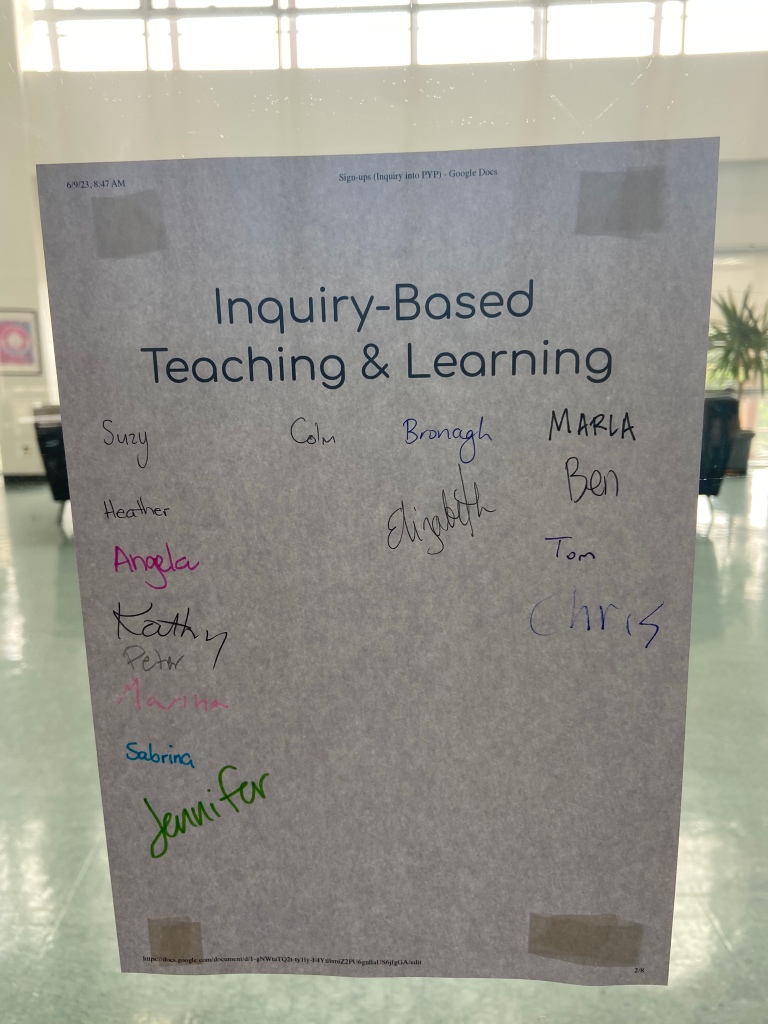
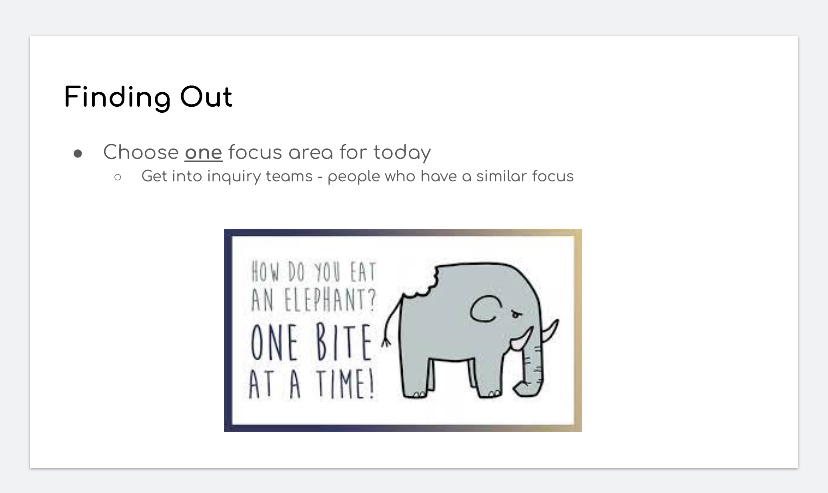

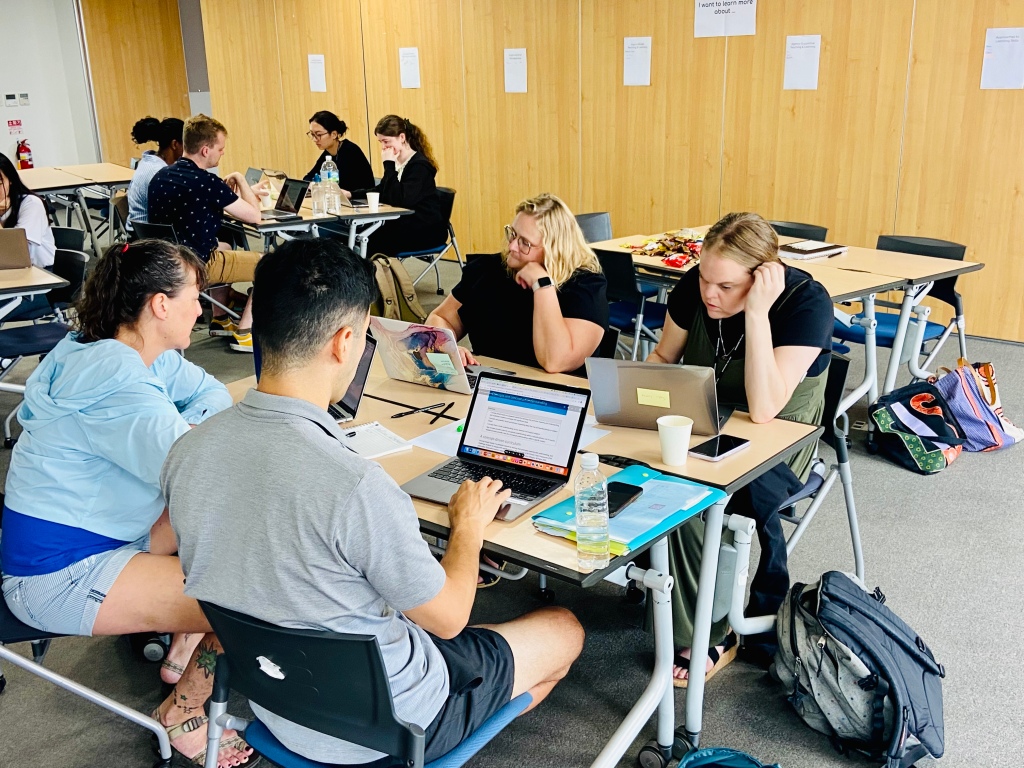

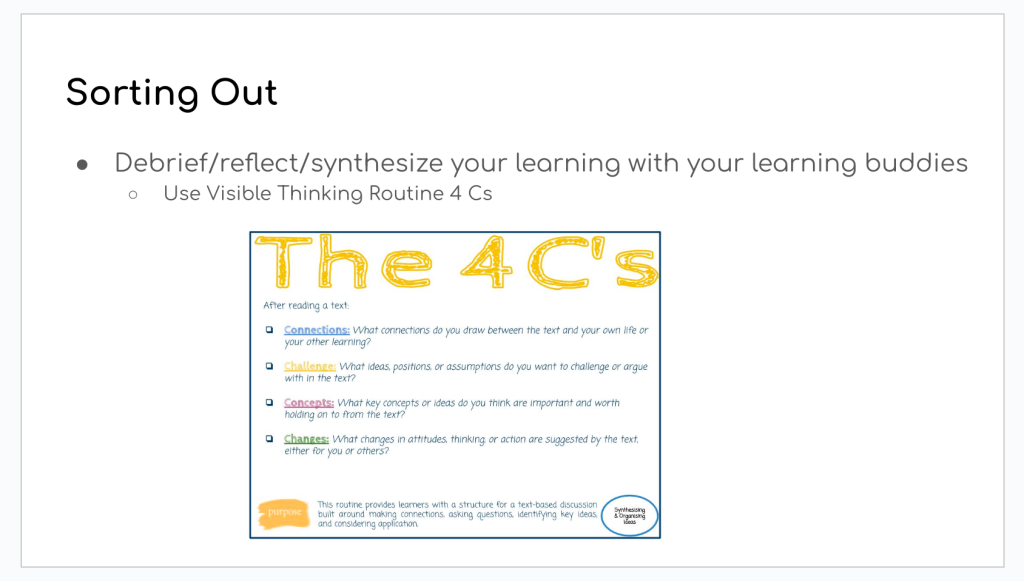
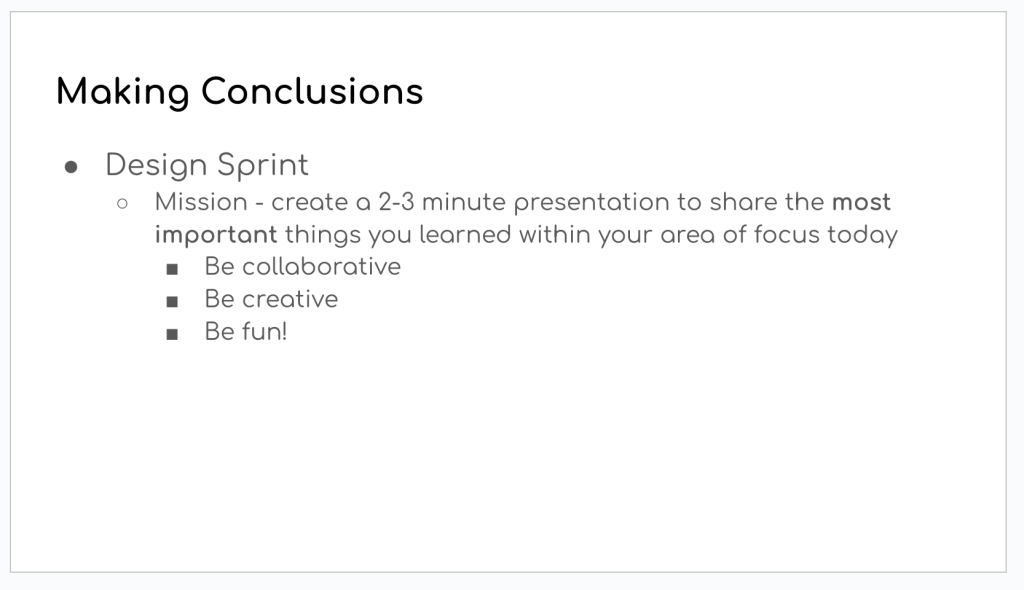
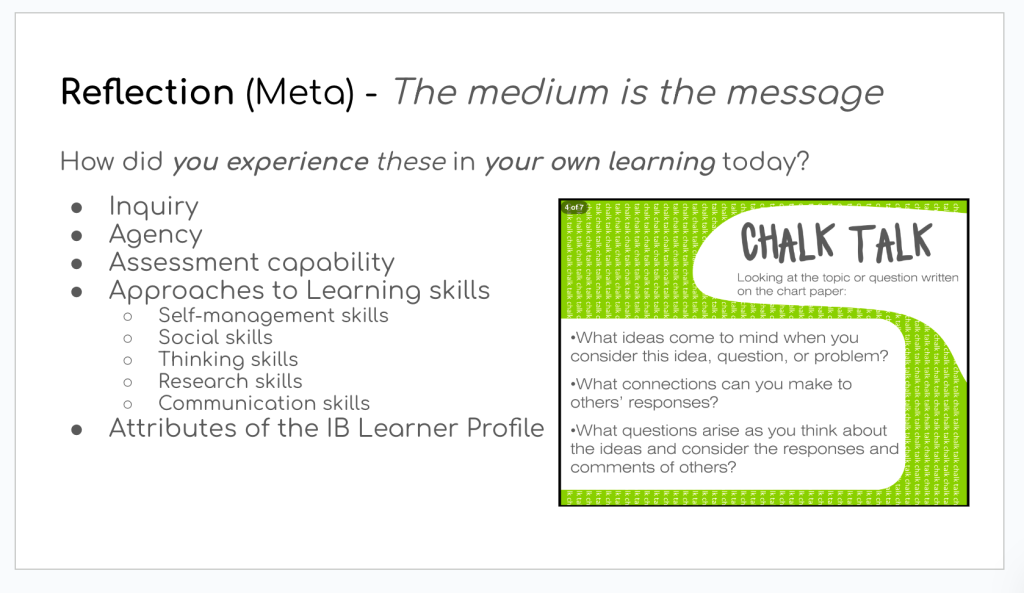
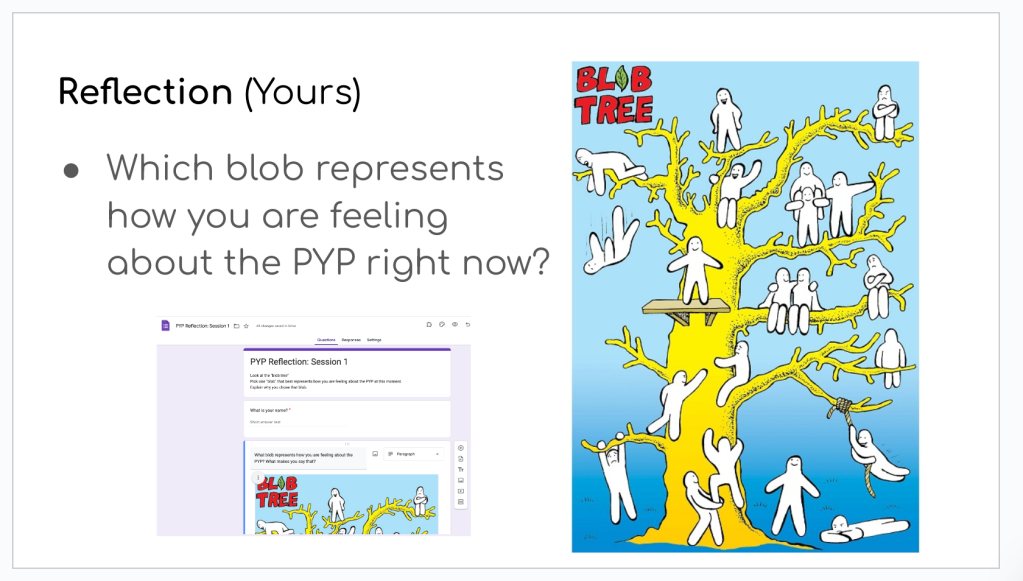
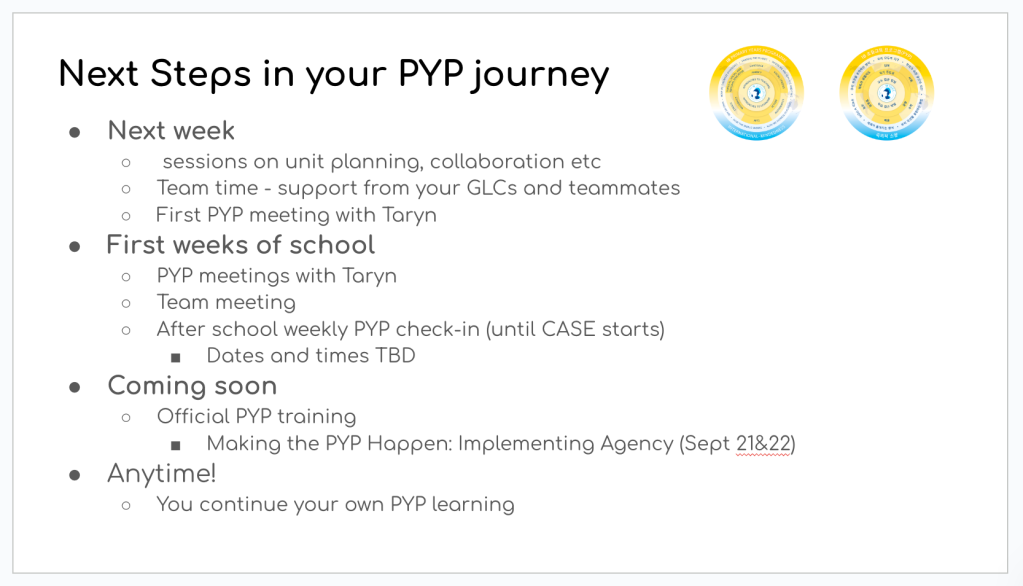
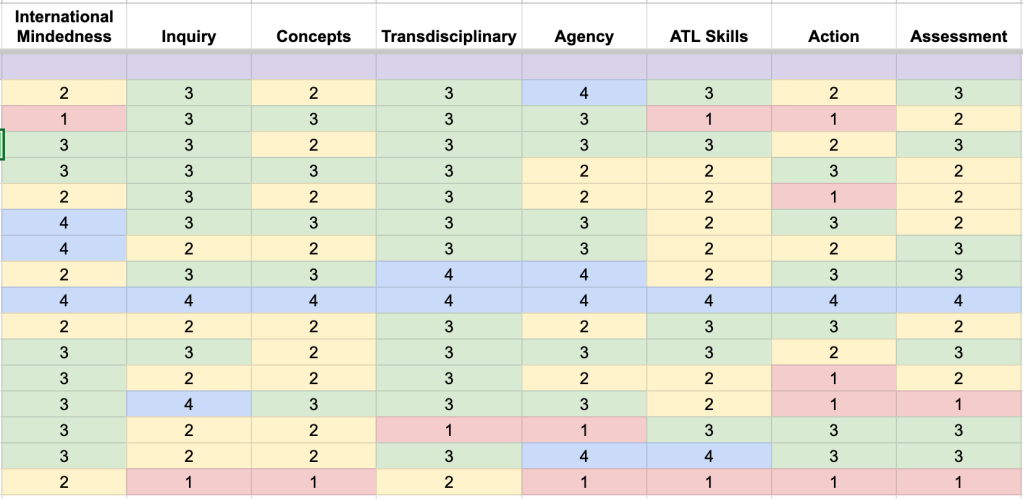
This sounds like a perfect inset day for me! I’m currently planning my first MTPYPH workshop and knew I’d find some ideas on your blog to magpie – so thank you!
I love the power of collaborators/ participants learning through the inquiry process they’d be expected to leran to facilitate and the engagement that would have followed from learners picking their own areas of development (as well as areas of expertise).
As always grabbing lots of ideas to consider in my own class practice as well as for supporting educators in my own school (informally)
Lee
LikeLike